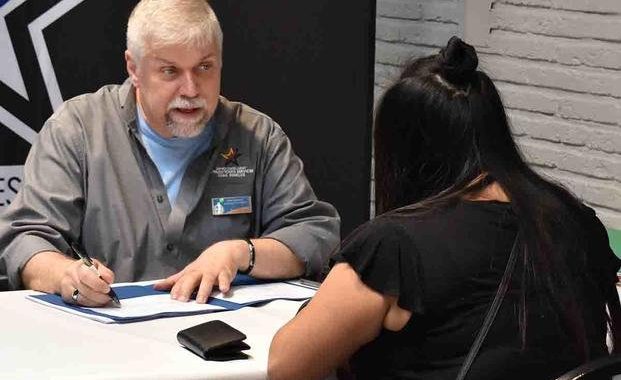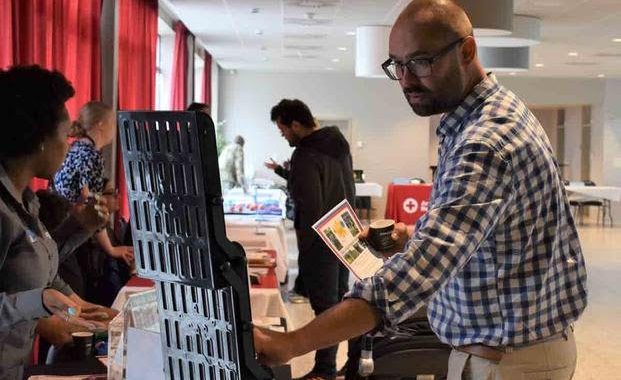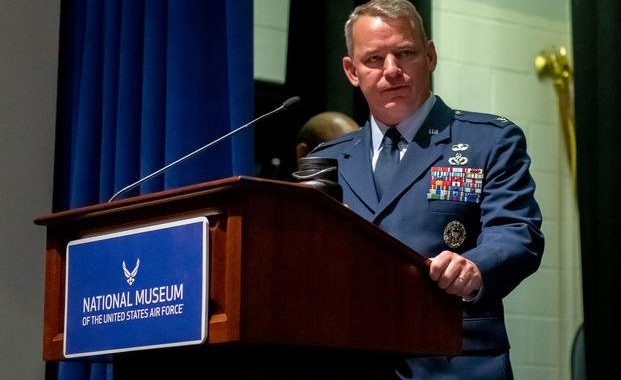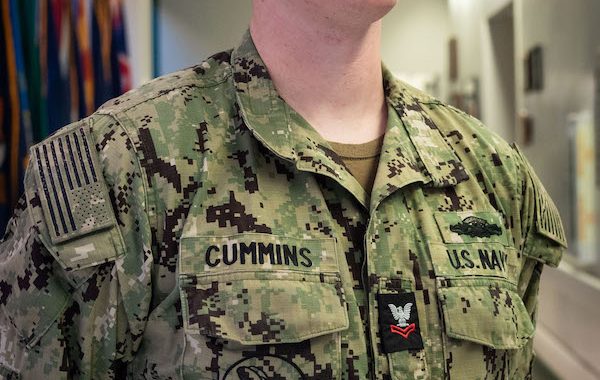Hispanic Cadets Show Talent As First Generation College Students
7 min read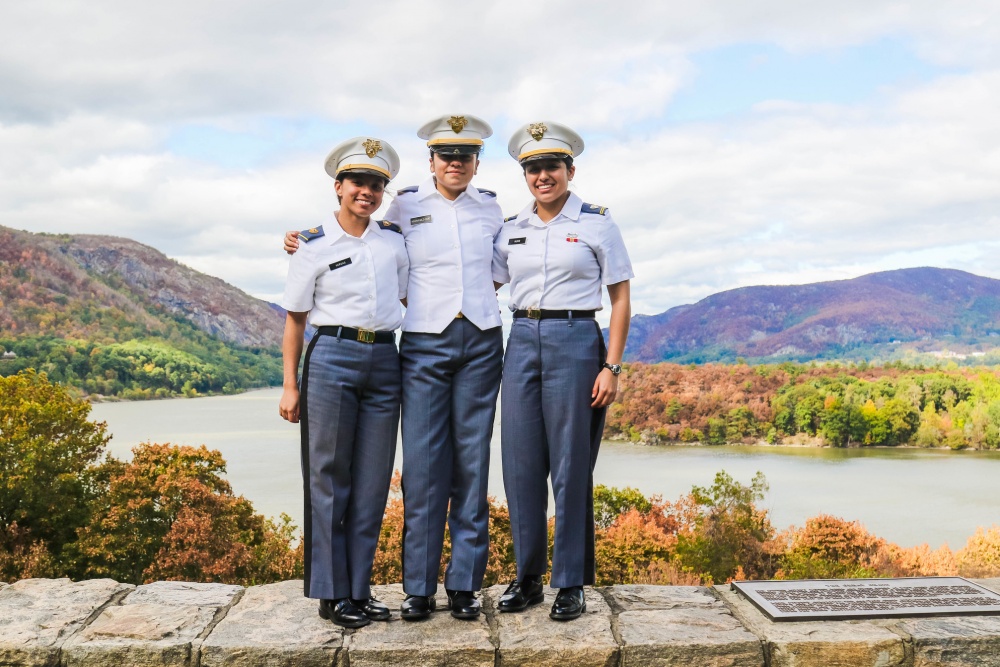
WEST POINT, NY, UNITED STATES
Story by Brandon OConnor
United States Military Academy at West Point
Walking back to class the three cadets fall into easy conversation discussing where they are from and mutual friends they’ve met throughout the Corps of Cadets.
Initially, their backgrounds all seem drastically different. Class of 2023 Cadet Leslie Rodriquez-Diaz grew up in California. Class of 2021 Cadet Nathania Nuño grew up in southern Arizona along the border with Mexico. Class of 2022 Cadet Eliana Vargas grew up mostly in Hawaii and most recently lived in Germany and Texas.
But for each of them, the daily act of putting on their uniform and walking to class at the U.S. Military Academy marks a monumental accomplishment. Each day, class and step brings them closer to accomplishing their goal of being the first members of their families to graduate not just from West Point, one of the top colleges in the United States, but from any college directly out of high school.
“I feel an immense pressure to do well and graduate,” Nuño said. “It’s a huge honor to be here. It feels good that I’m here and being able to provide for my family more than they were able to.”
Early on, Nuño knew she had no choice. She would either go to college out of town or she’d fall back into the cycle she’d seen trap so many of her friends. After high school, they’d fall in with the cartels just across the border and start selling drugs or just stay in town and get a job working in the agricultural fields.
Neither of those choices was the life she wanted. Her father had worked too hard, fought and scraped too much for his own education for her to not try to improve her life.
Although he was born in Los Angeles, her dad’s family moved back across the border into Mexico because it was the only place they could afford a house. Every day in high school, his pursuit of an education would take him back over that border into Arizona. Rise at 2 a.m., wait in line at the border with the farm workers and then take a bus 30 minutes to school.
Her dad’s siblings later joined him on the trip traveling from the border to school in a car they left in Arizona. He’d drive to school illegally at first with nothing but a learners’ permit.
“He didn’t obtain a college degree, just his willingness and his motivation to be able to try to break that cycle motivated me to pursue something higher, which, in this case, was pursuing a college education,” Nuño said.
Despite Nuño’s motivation to better her life, the odds were stacked against her. Her high school had low rates of college attendees, the academics were below grade level and even as she worked through the obstacles, there was still the cost. She simply couldn’t afford to go.
Her dad, who’d served in the Army for four years before becoming a police officer, encouraged her to apply to the Air Force Academy, which he declared a “safe” option as opposed to joining the Army. Nuño decided to run with the idea and applied to and was accepted to all five military academies, including West Point which she decided to attend despite her dad’s worries.
“I got accepted to West Point with a 24 ACT score, which is very, very low,” Nuño said. “They gave you the option to write an optional essay, which I did. I talked about how my ACT score is actually very high compared to the people in my area. The average ACT score where I live is 16. I took the ACT seven times and I was only able to get a 24.”
Vargas’ mom knew West Point was the place for her daughter even before she did herself. Watching the Army-Navy Game, her mom would push her to picture herself wearing the gray coat of a cadet.
The Army had been a way out for both her and Vargas’ dad. A native of Puerto Rico, Vargas’ mom enlisted in the Army and was stationed in Korea where she met Vargas’ dad. He was born in Colombia, but his family moved to New York after his dad was killed by the Medellín Cartel when he was seven-years-old.
Despite growing up in a family where both of her parents served, the Army held no appeal for Vargas. Seeing her parents working long hours and the frequent deployments taking her dad away for lengthy periods of time had taken a toll.
Her parents continued to encourage her to take a look at being an officer and despite her misgivings she joined JROTC. That experience, along with seeing how officers helped her parents, convinced her to take the plunge and apply to West Point and don one of the gray cadet coats.
“My parents saw something in me that I didn’t see in myself, like the potential to come here. Once I kind of got on that train I went with it,” Vargas said.
Rodriquez-Diaz knew she wanted an education. Her parents, both natives of Mexico, had only finished third grade and two of her older siblings had started community college after high school, but neither had finished their degrees. From the get-go, school was something she always enjoyed. Her dreams as a child were to be an academic and a scientist.
The thought of joining the Army wasn’t even on the horizon until she joined JROTC in high school.
The instructors in the program first introduced her to the idea of West Point. Despite her unfamiliarity with West Point and no precedent for people in her family going away to college, the desire to challenge herself and pursue the best education she could pushed her to take the risk and apply.
Her mom was in favor of the move across the country for school, her dad not so much. Waiting in line on Reception Day, her phone rang with a call from her dad. He wanted her to know that even as she was about to join the academy, it was OK if she just wanted to come home.
She chose to stay and made it through Cadet Basic Training. As she works her way through her first semester at West Point, phone calls home like the one she received from her dad have proven to be a lifeline even if they can’t really relate to what she is going through.
“Sometimes, I have to remind myself that I’m here for the next four years,” Rodriquez-Diaz said. “You talk to your family, but my family won’t understand exactly what that feeling is like, and they don’t really know what to tell me to comfort me.”
As first-generation college attendees, the transition proved to be hard for Nuño and Vargas, much as it has been for Rodriquez-Diaz.
Vargas was raised to embrace her identity as a Hispanic American. Culturally, she fully embraced her mother’s Puerto Rican and her dad’s Colombian heritages. The music, foods and dances of their cultures became important parts of her life.
Although she’d lived in diverse areas such as Hawaii, Germany and Texas, coming to West Point still proved to be a culture shock as she was suddenly very much in the minority within the Corps of Cadets as not only a female, but specifically a Hispanic female.
“People here always assumed I spoke Spanish or that I’m Mexican or I’m supposed to like spicy food, all these different stereotypes,” Vargas said. “I was like, hey what the heck. It’s really different and I had to accommodate.”
She found her outlet through the West Point Dance Team where she can authentically be herself. She can play her Latin music. She can salsa dance as she has her entire life, and be her loud and energetic self.
“I do stay a little bit more low key, which is kind of good because not every environment is going to be the same,” Vargas said. “You have to be really professional in some settings. Then you can be yourself in other settings. The dance team and dance practice are really where I can just be myself and not be judged about it.”
Her first year at the academy, Nuño struggled with culture shock coming from an area that was almost entirely Hispanic. She struggled with academics as the difficulty massively increased from high school and she struggled with physical fitness, which hadn’t been important to her before she decided to pursue the academies.
But much like her dad crossing the border each day for school, she refused to let the obstacles standing in her way stop her. She searched for outlets to learn about other cultures such as joining the taekwondo team and she chose sociology as her major to broaden her worldview after growing up in a Hispanic bubble in Arizona.
“That fear of failure was always there,” Nuño said. “It’s still there. I mean, every single person at West Point has that fear of failure. What makes me different is that if I were to fail, I would have nothing to fall back on because West Point is all I have. If I were to go back, I would fall right back into that cycle.”


